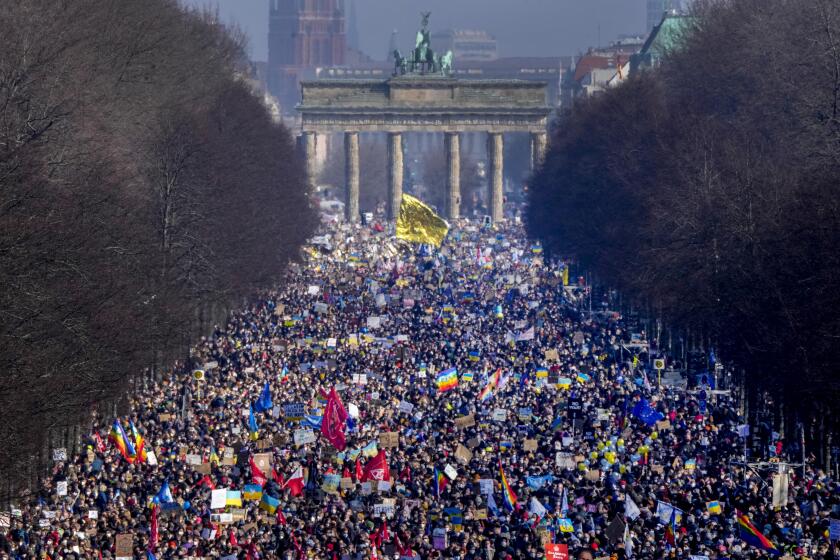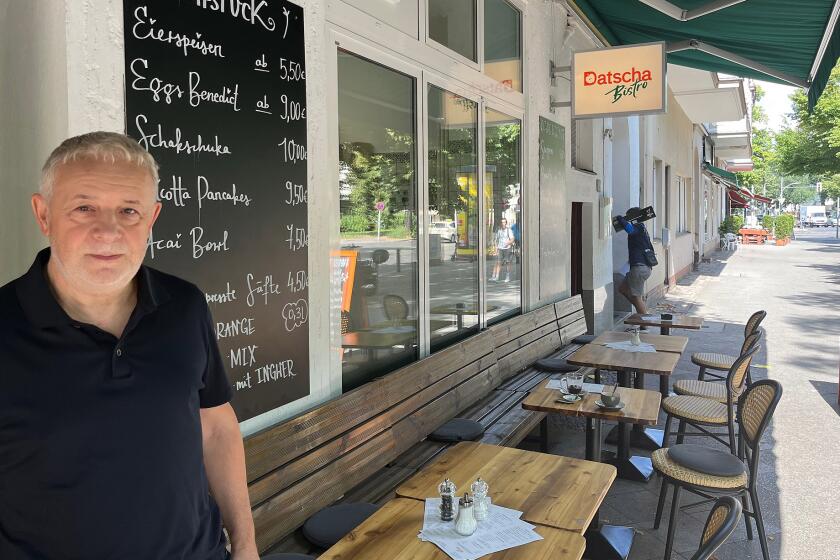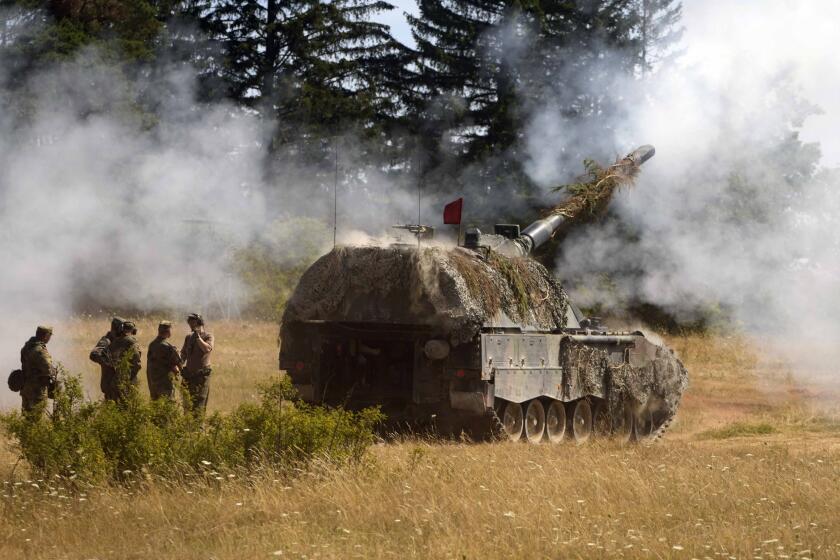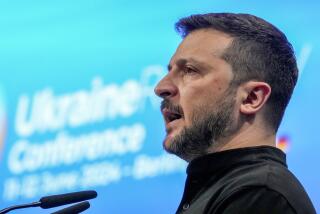‘I’ve given up on all my dreams’: Dread in Germany deepens over war in Ukraine
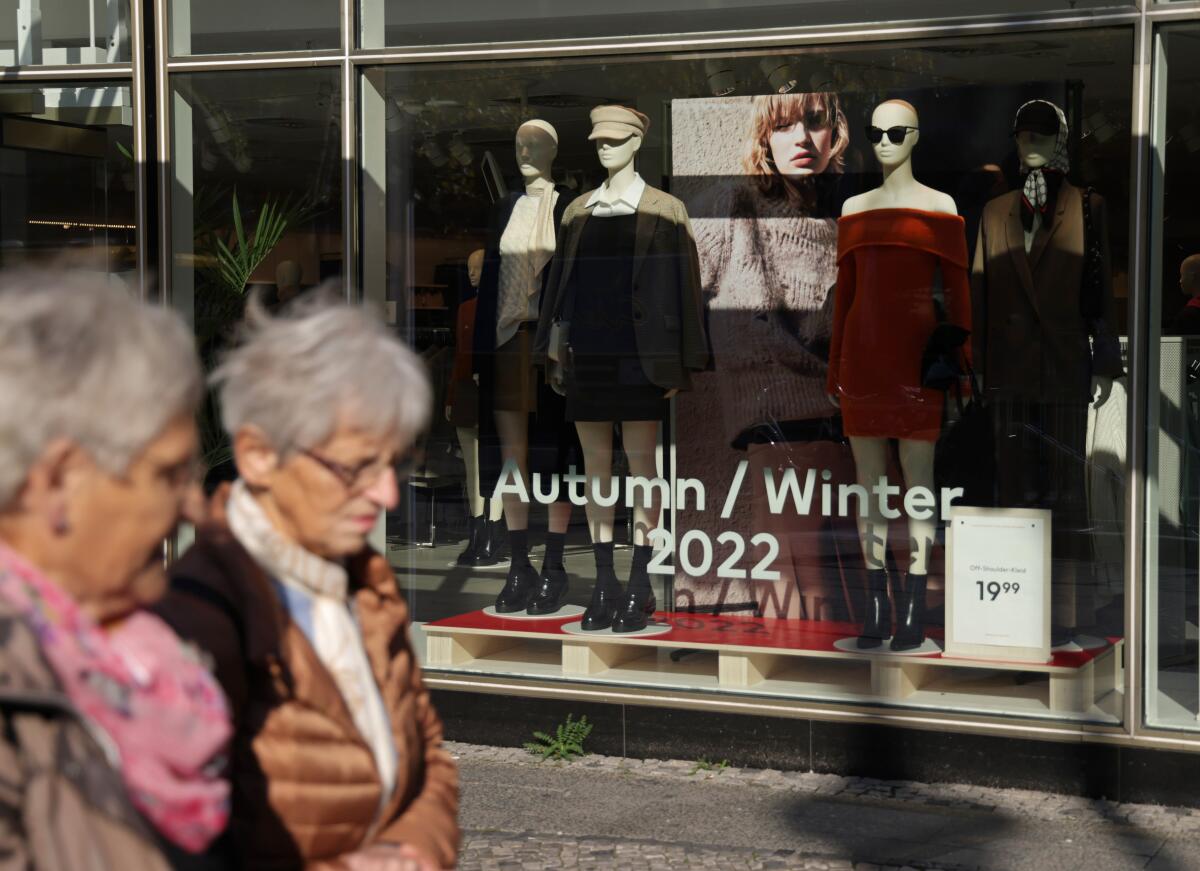
- Share via
BERLIN — Kati Pannwitz spends her evenings at home alone in a darkened and unheated apartment, watching old movies while worrying about the new reality of life in a country that is being drawn ever closer to the war in Ukraine.
Surging inflation and fears about an energy crisis are hitting home for Pannwitz, 34, taking a heavy toll on her finances and the futures of both her and her 17-year-old son.
No more vacations, no more trips abroad, no more going out, no more saving and an outlook that has grown increasingly bleak for Pannwitz — and millions of fellow Germans — since Russian armed forces invaded Ukraine seven months ago.
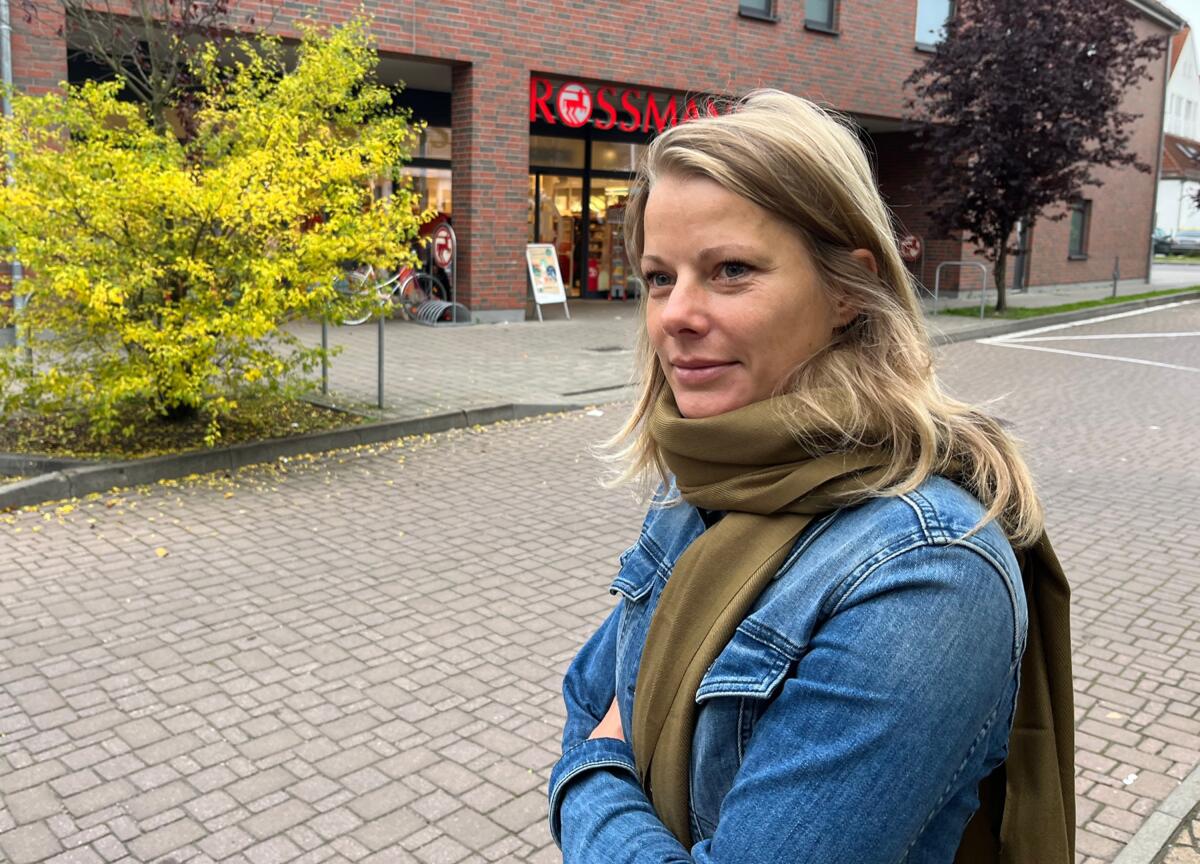
“I’ve given up on all my dreams,” said Pannwitz, a single mother who works at a Berlin car dealership and had been saving up to travel the world one day. Because her financial reserves have vaporized this year, she plans to start moonlighting in a men’s clothing shop just to keep making ends meet. Her son recently joined the army after finishing high school.
“Like all my friends, I’m scared about how to get by,” she said. “How can we pay the bills when prices are going insane like this? First I turned the heat down, but then I turned it off after the bill doubled. I’ve been using candles instead of lights, and watching Netflix instead of going out. What else can I do? How are we going to survive this?”
Fears of runaway inflation have been anathema for generations to Germans aware of the history of Adolf Hitler and his Nazi Party rising to power on the heels of a nation ravaged by hyperinflation in the 1920s.
The anxiety in one of Europe’s most prosperous countries provides an eerie hundred-year déjà vu that has upset Germans more than the war itself that they want nothing to do with — yet playing out just 1,000 miles to the east.
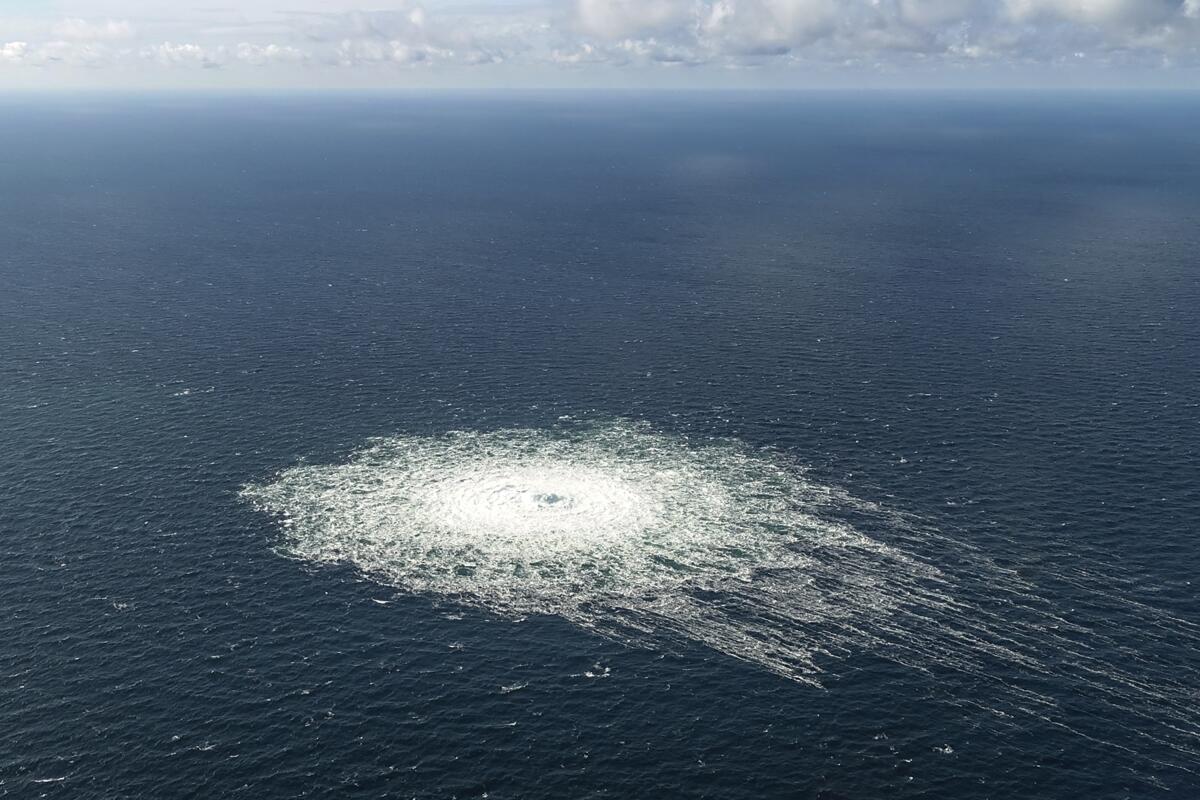
Exacerbating the anxiety of a dark, cold and possibly even hunger-filled winter ahead have been the ominous saber-rattling from Russian President Vladimir Putin about possibly turning to nuclear weapons against Ukraine and the West. The mystery-shrouded explosions at the bottom of the Baltic Sea, damaging natural gas pipelines that had not long ago delivered nearly half of Germany’s supplies, have unsettled the country even more.
“No one will freeze or starve to death this winter — can the German government really back up that promise?” was the entirely earnest episode title of a popular prime-time talk show called “Anne Will” on the ARD public broadcasting network last Sunday.
On Thursday, the German government announced a $200-billion relief package designed to help Germans pay heating and electricity bills that for many have already doubled or, in some cases, tripled. Germans have been urged to conserve energy, turn down their thermostats and take cold or shorter showers, while authorities have shut off the lights and turned the heat down in public buildings.
Shocked out of its postwar lethargy by Russia’s invasion of Ukraine, Germany was transforming itself by arming Ukraine with weaponry and boosting defense spending.
The dread spreading across Germany over inflation — which hit a 71-year high of 10% this month — and energy shortages have not gone unnoticed in Washington, where there are concerns about whether Europe’s largest economy could become a weak link in the chain taking a firm line on sanctions against Russia.
The unmistakable German trepidation has also been followed closely in Moscow, where Putin — the erstwhile KGB agent in East Germany and still a fluent speaker of the language — is reported to be an avid consumer of German media.
Putin is likely aware of opinion polls showing Germans to be more wary than others about the war and haunted about inflation, energy scarcity and warfare spreading to their peace-obsessed land.
A recent survey for ARD by the respected Infratest Dimap institute found support for the German government and the tough sanctions regime against Russia sliding from a 66% approval rating in March to 53% in September. When asked their views if sanctions were to end up disrupting energy supplies, approval dropped from 68% in March to 54% in September.
Germany is home to one of the world’s biggest Russian diaspora communities, but the Ukraine war has sparked incidents of ostracism and discrimination.
The institute also found in an April poll that 80% of Germans were worried the war in Ukraine would cause lasting damage to Germany’s economy, 76% were afraid that Germany would suffer energy shortages, and 64% worried that the war would spread from Ukraine across Europe.
“A lot of people with modest incomes are hurting right now and afraid of what’s next, and there’s been quite an erosion in support for Ukraine and the sanctions as a result,” said Thomas Jaeger, a political scientist at Cologne University. “When it gets really cold this winter, support is going to sink further. The United States and other European countries already see Germany as a weak link. That’s going to be even weaker if the energy bills keep rising out of control.”
After decades of neglect and the stigma of its Nazi past, Germany warms up to the idea of rebuilding its army, thanks to the war in Ukraine.
Already a deeply pacifist country with an understandable aversion to war after its Wehrmacht caused destruction across Europe in World War II, Germany has been accused of dragging its feet on supporting Ukraine’s efforts to defend itself — at first refusing to send any weapons over fears it could antagonize Putin and lead to a wider war, and then coming up with a litany of changing reasons for withholding its highly regarded armored vehicles, tanks and air defense systems.
“Germany’s reputation as a reliable partner in Europe is taking a nose-dive,” said Jaeger, pointing to a survey last week by the German Marshall Fund that found perceptions of Germany’s reliability have plummeted by more than 10 percentage points this year in Poland, Turkey, the United States and Spain.

That doesn’t matter at all for Germans like Joerg Feucker, a 51-year-old tax advisor in Berlin who is worried that what he calls the West’s “economic war” against Russia will only end up crippling German industry, cause insolvencies and put an abrupt end to three golden decades of post-Cold War prosperity.
“Everyone I know is scared about this war but also afraid of our economy falling apart, and the fallout from that could end up being worse than from the war,” Feucker said, noting that Germany’s position as the world’s fourth largest economy could be in jeopardy.
“It’s all looking grim right now with no silver lining on the horizon anywhere. It’s all falling apart right in front of our eyes, and we’re back to where we were during the Cold War with an East-West nuclear standoff,” he said. “People are scared, and don’t know how they’re going to get through this. ...
“It’s hard for a lot of us to understand how we’re getting sucked into so much destruction for Ukraine. A lot of people don’t get it.”
More to Read
Sign up for Essential California
The most important California stories and recommendations in your inbox every morning.
You may occasionally receive promotional content from the Los Angeles Times.
